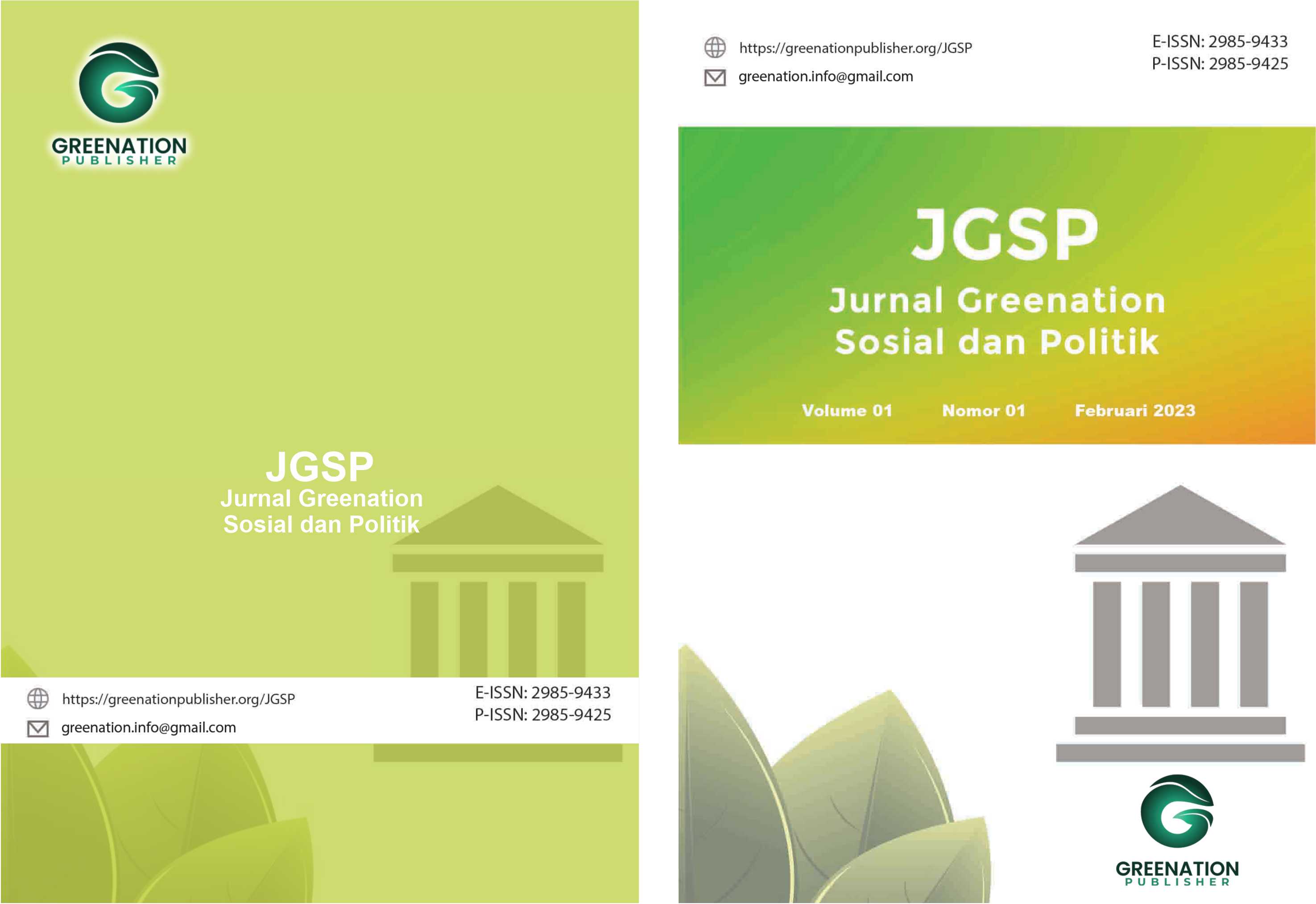Optimization of Smart Policing and Democratic Policing Concepts as Polri's Efforts in Building Synergy with the Community to Realize Inclusive and Just Security Governance
DOI:
https://doi.org/10.38035/jgsp.v3i3.429Keywords:
Smart Policing, Democratic Policing, Police, Inclusive Security, Restorative Justice, Legal ReformAbstract
The security paradigm in the modern era has experienced a significant shift from a repressive approach to a more preventive, participatory, and technology-based model. In the Indonesian context, this is reflected in Polri’s efforts to adopt the Smart Policing and Democratic Policing concepts as a reform strategy for building inclusive and just security governance. Smart Policing emphasizes the use of information technology, big data, and artificial intelligence in detecting, analyzing, and preventing crime predictively. Meanwhile, Democratic Policing emphasizes the principles of transparency, accountability, respect for human rights, and community involvement in the security decision-making process. This study uses a normative legal method to analyze the legal basis and effectiveness of the implementation of police policies, referring to the latest regulations such as Law Number 2 of 2002 concerning the Police, Law Number 27 of 2022 concerning Personal Data Protection, and Police Regulation Number 8 of 2021 concerning Restorative Justice. The analysis shows that optimizing the two approaches still faces challenges in terms of limited digital infrastructure, regulatory gaps, and minimal independent civilian oversight. To realize a fair and democratic security system, it is necessary to strengthen institutional capacity, increase technological literacy for Polri personnel, and develop community participatory forums. The synergy between institutions and the public is key to building legitimacy and trust in the national security system.
References
Aina, A. N. (2024). Perubahan Pola Hubungan Masyarakat-Pemerintah: Refleksi Atas Penanganan Aduan Publik Melalui Media Sosial di Kota Makassar. Jurnal Administrasi Karya Dharma, 3(1), 104-113.
Baek, M. S. (2021). Smart policing technique with crime type and risk score prediction based on machine learning for early awareness of risk situation. IEEE Access, 9, 131906-131915.
Butar, F. B. (2025). BUNGA RAMPAI Refleksi Hukum dan Hak Asasi Manusia Kontemporer. Surabaya: Airlangga University Press.
Condro, S. P. (2022). Perubahan Paradigma Pemolisian di Era Pandemi Covid-19. Jurnal Keamanan Nasional, 8(1), 16-25.
Hasibuan, E. S. (2023). Reformasi Polri: Menilik Keberhasilan Program Presisi Polri. KRTHA BHAYANGKARA, 17(3), 515-524.
Ilham, M. &. (2024). Praktik Penyelenggaraan Ketenteraman dan Ketertiban Umum. Bandung: AMU Press.
Indarti, E. (2022). Penegakan hukum, perpolisian masyarakat dan pewujudan keamanan: Suatu kajian filsafat hukum. Masalah-Masalah Hukum,, 51(2), 141-152.
Ismail, M. (2023). Digital Policing; Studi Pemanfaatan Teknologi Dalam Pelaksanaan Tugas Intelijen Kepolisian untuk Mencegah Kejahatan Siber (Cybercrime). Jurnal Ilmu Kepolisian, 17(3), 15-15.
Muntingh, L. F. (2022). Democratic policing: A conceptual framework. Law, Democracy & Development, 25(1), 121-155.
Negara, L. G. (2024). E-Policing dan Implikasi Kebijakan Pengelolaan Keamanan Publik. Jurnal Syntax Admiration, 5(12), 5764-5771.
Setiawan, G. N. (2024). KAJIAN HUKUM TERHADAP PENGGUNAAN TEKNOLOGI ANALISIS SENTIMEN OLEH PIHAK KEPOLISIAN. LEX PRIVATUM, 14(3).
Setiawan, M. &. (2023). Strengthening Democratic Policing in the Perspective of Civic Education: A Conceptual Analysis. Jurnal HAM, 14, 217.
Sherly, R. N. (2025). Etika Profesi Kepolisian Dan Pengaruhnya Terhadap Penegakan Hukum Yang Adil Dan Transparan. Das Sollen: Jurnal Kajian Kontemporer Hukum Dan Masyarakat, 3(01).
Sudira, I. W. (2025). Keadilan Digital: Tantangan Hukum Dalam Era Disrupsi Teknologi. Kertha Widya, 12(2), 35-59.
Surojudin, N. Z. (2025). Pengembangan Kebijakan Keamanan Adaptif Berbasis Machine Learning pada Firewall SDN. Jurnal Pustaka AI (Pusat Akses Kajian Teknologi Artificial Intelligence), 5(1), 45-49.
Usfunan, J. Z. (2024). Dinamika Pendekatan Legislasi Dan Regulasi Dalam Peningkatan Kualitas Dan Ius Constituendum Perundang-Undangan Indonesia. Proceeding APHTN-HAN, 2(1), 197-234.
Waluyo, B. (2022). Penegakan hukum di Indonesia. Jakarta: Sinar Grafika.
Wangsajaya, Y. Z. (2023). Monograf Model Pengukuran Kualitas Layanan Publik Dengan Indikator Presisi Polri Berbasis Kecerdasan Buatan. Klaten: Nas Media Pustaka.
Wibowo, A. W. (2023). Pemolisian digital dengan artificial intelligence. Depok: PT. RajaGrafindo Persada.
Wiratraman, H. P. (2023). MENINJAU KEMBALI HUKUM DAN KEADILAN SOSIAL DALAM TRANSFORMASI DIGITAL. Masalah-Masalah Hukum, 52(3), 283-294.
Downloads
Published
How to Cite
Issue
Section
License
Copyright (c) 2025 Joko Edy Santoso, Joko Setiono, Yopik Gani Gani

This work is licensed under a Creative Commons Attribution 4.0 International License.
Hak cipta :
Penulis yang mempublikasikan manuskripnya di jurnal ini menyetujui ketentuan berikut:
- Hak cipta pada setiap artikel adalah milik penulis.
- Penulis mengakui bahwa Jurnal Greenation Sosial dan Politik (JGSP) berhak menjadi yang pertama menerbitkan dengan lisensi Creative Commons Attribution 4.0 International (Attribution 4.0 International CC BY 4.0) .
- Penulis dapat mengirimkan artikel secara terpisah, mengatur distribusi non-eksklusif manuskrip yang telah diterbitkan dalam jurnal ini ke versi lain (misalnya, dikirim ke repositori institusi penulis, publikasi ke dalam buku, dll.), dengan mengakui bahwa manuskrip telah diterbitkan pertama kali di JGSP.























